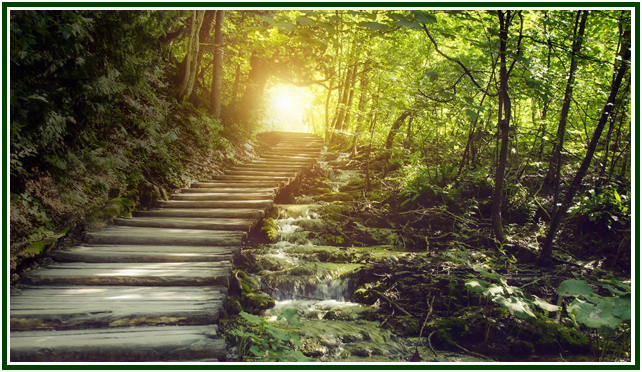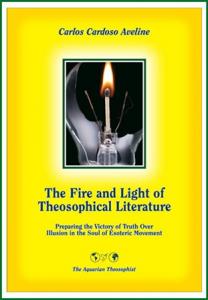
Observing the Sacredness of Daily Life
Carlos Cardoso Aveline

* Self-respect enables one to be sincerely kind towards others.
* True strength does not need to be expressed through obvious ways.
* In the outer calm of a wise man, the suddenness of lightning is included.
* Avoiding an excess of stimuli and information makes it possible to have inner peace.
* Harmony can last as long as it is based on justice and mutual respect. And these two must come from the hearts of people.
* Since the time available to anyone is limited and of great value, we must have clear goals and develop our efforts with moderation and perseverance. It is wise to focus on what we consider morally beautiful.
* One can open the doors of individual existence to a living bliss. It is enough to focus on good thoughts and feelings of a universal nature, while preserving realism and common sense.
* Words and actions must be compared, so that noble ideals are not used as beautiful excuses to develop ignoble actions.
* A key to brotherhood and to right human relationships is given by a central idea in Transactional Analysis: “I’m OK, You’re OK”. [1]
* In the mystery of deep love and creativity, eternal strength meets the fleeting beauty in the abstract point of present time. All the ages are contained in each instant.
* If the altruism of a noble intention is unconditionally firm from the start, it will get only firmer as time passes and tests emerge.
* Contentment is contagious. Everything improves when we recognize the legitimacy of each other, and when such an acknowledgement is well-deserved.
* Human beings cannot avoid making mistakes, but they can always try their best at any age, in every circumstance, and this constitutes a good habit. Karma depends on habits, into a great extent.
* A decisive factor in life, and in the science of having peace, is self-esteem. One needs a deeper sense of self-respect and self-confidence in order to see that life is correct as it is and in all its apparent complexity.
* What happens when you dedicate your efforts to that which you consider true, good and beautiful? Step by step, ignorance gets reduced and wisdom grows with more strength, like plants after the rain.
* Seven days a week, our immortal soul or higher self is the silent witness to our actions, physical, emotional and intellectual. For many, this is an inspiring fact. For others, however, it may be a little bit embarrassing.
* Theosophists will do well in keeping a good-willing eye to the present world situation. The power of good thoughts issuing from unselfish hearts may prevent unnecessary suffering and destruction.
* Clarity of vision does not come of itself. It is not obtained in universities or transmitted in formal esoteric schools. It emerges from having long-standing noble goals and an altruistic view of “personal” life.
* Mountains are nearer to the sky than we are. In the language of the soul, they constitute symbolical ladders to celestial or divine levels of consciousness in ourselves. The climbing of a mountain is as probationary as the path to wisdom.
* In the contrasting see-saw of life, there is an invisible middle point of unconditional peace, and this is what establishes equilibrium. While the dynamics of balance between the opposites is always there, it is not necessarily easy to perceive. For that we must see the practical unfoldment of balance taking place across time, according to the law of cause and effect.
* The intelligent pilgrim is undogmatic and develops discernment while having the courage to make firm decisions.
* A long-term view of life is unavoidable in theosophy because the karma of right thought and right action needs time to accumulate and ripen. The amount of time needed is in direct proportion to the amount of individual and collective ignorance which one needs to overcome.
NOTE:
[1] See the excellent book “I’m OK, You’re OK”, by Thomas A. Harris.
000
The above fragments were first published anonymously in the August 2014 edition of “The Aquarian Theosophist”. Most of them were under the title “A Few Thoughts Along the Road”.
On the role of the esoteric movement in the ethical awakening of mankind during the 21st century, see the book “The Fire and Light of Theosophical Literature”, by Carlos Cardoso Aveline.

Published in 2013 by The Aquarian Theosophist, the volume has 255 pages and can be obtained through Amazon Books.
000